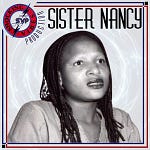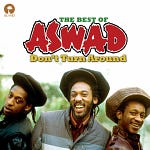Rocksteady was born in Jamaica around 1966, during a time of musical and cultural transformation. It was the bridge between the fast-paced, brass-heavy ska era and the deeper, bass-driven sound of reggae that followed. Lasting only about two years (1966–1968), its short lifespan had a massive impact.
How Rocksteady Came to Be
Slower Tempo: Musicians began slowing down ska to create a more laid-back, cooler rhythm. This gave singers more space to express more profound, more emotional lyrics.
Youth Influence: Jamaican youth, known as rude boys, played a significant role in the scene. Rocksteady reflected both their swagger and their struggles. (Listen and download my Rude Boy Mix)
Key Studios: Legendary studios like Studio One, Treasure Isle, and Federal Records were hotbeds for Rocksteady hits.
Studio Innovation: With a greater focus on basslines, harmonies, and vocal melodies, producers began stripping down arrangements and experimenting with rhythm sections.
Why It Gave Way to Reggae & Roots
Social Shifts: As Jamaica’s political climate became more turbulent in the late '60s, the music evolved to reflect the struggle. Lyrics shifted from love songs to messages of revolution, spirituality, and identity.
Rastafari Movement: With the rise of Rastafarianism, music began incorporating its themes and rhythms, pushing toward roots reggae.
Dub & Studio Experimentation: Producers like King Tubby and Lee Perry began using echo, reverb, and dropouts—setting the stage for dub and roots reggae.
PLAYLIST
Hugh Malcolm – Good Time Rock (1969)
Leon Dinero – Version (2017)
Sid Bucknor, The Slickers – You Can't Win (1969)
Audrey – You'll Lose a Good Thing (1970)
Stranger Cole, Gladdy Anderson – Just Like A River (1968)
Dave Barker, The Upsetters – Shocks of Mighty (1970)
The Pioneers – Long Shot (1967)
The Kingstonians – Lion's Den (1969)
Alton Ellis – Can I Change My Mind (1970)
The Jamaicans – Love Uprising (1968)
Joya Landis, Tommy McCook, The Supersonics – Moonlight Lover (1968)
Count Machuki & The Destroyers – Movements [The Joe Gibbs Way] (1967)
Dennis Alcapone – Wake Up Jamaica (1972)
Ken Parker, Tommy McCook, The Supersonics – I Can't Hide (1967)
The Uniques – A Yuh (Hey You) (1968)
The Termites – Love up Kiss Up (1967)
The Versatiles – Push It In (1968)
Phyllis Dillon, Hopeton Lewis – Boys and Girls Reggae - Take 3 (1970)
The Ebony Sisters, The Rhythm Rulers – Let Me Tell You Boy (1970)
Delroy Wilson – Put Yourself in My Place (1968)
The Ethiopians – Hong Kong Flu (1969)
Keith & Tex – Don't Look Back (1967)
Ken Parker – True, True, True (1967)
Clancy Eccles – Fattie Fattie (1969)













Share this post